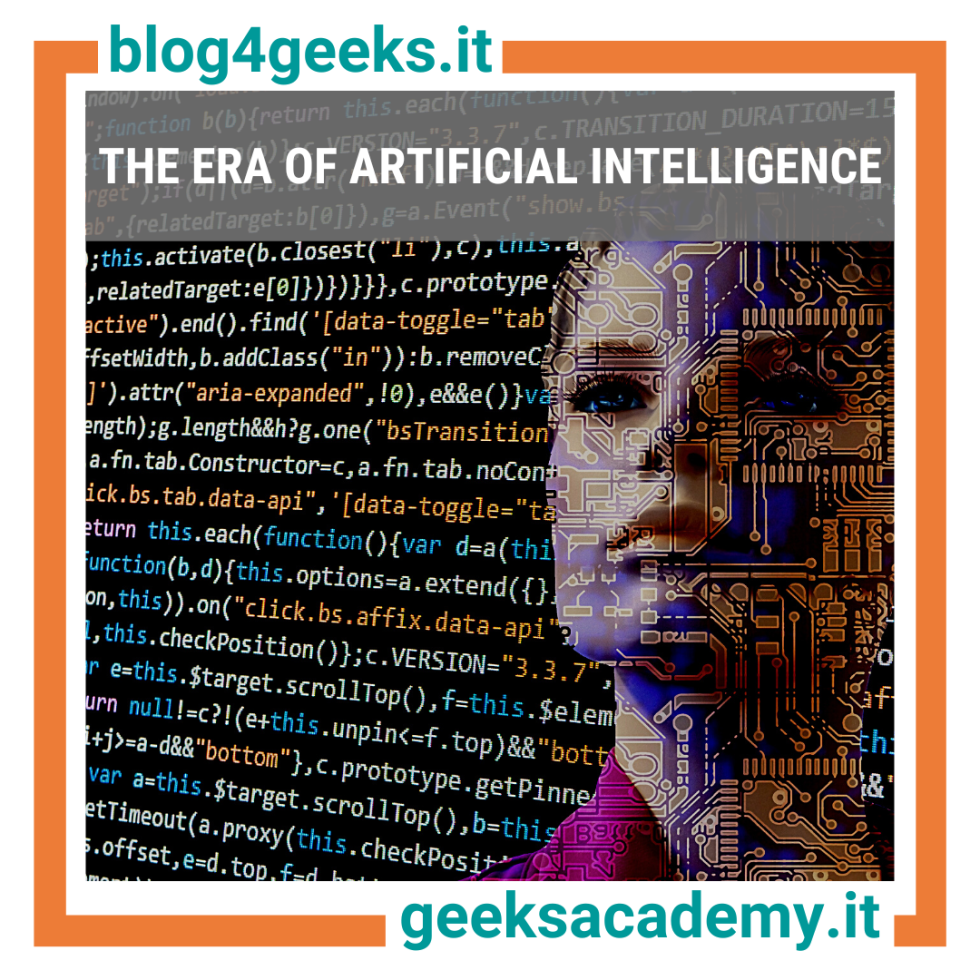
Discover Geeks Academy’s articles on: Blockchain, Coding, Cybersecurity, Cloud, Big Data, Artificial Intelligence, Gaming, Digital Innovation
In the digital age, our life regularly interacts with technology. Each device is now connected to the Internet, capturing and providing useful information. Music lovers surely have an app such as Spotify, Amazon Music or Apple Music on their smartphone. Don't you know what to listen to? The app will suggest playlists that will be right for you. By logging into your favorite social network, it is very likely that you will find sponsored posts that reflect your tastes. For those who generally use Google Maps, you probably received (at least once) a notification like “would this place be of your interest?”
Those examples are just the tip of the iceberg. Nowadays it is not just a smartphone that gives us a hand. The list is extensive: voice assistants (Amazon Echo), household appliances (refrigerators, washing machines, etc.), smart TVs and so on. However, have you ever wondered how is it possible? How does that specific device manage to suggest useful information at the right time? Through the use of artificial intelligence.
Brief history of AI
Artificial intelligence (AI) is a field of study officially born in the XX century. However, there were some prominent personalities during the XVI-XVII scientific revolution talking about the relationship between machine and intelligence. Way back in 1637, Descartes said that one day there would be a machine capable of acting and thinking intelligently. And he wasn't wrong at all! Besides early scientists’ studies and conjectures, in 1950 the British mathematician Alan Turing wrote an article for the magazine “Mind” titled "Computing machinery and intelligence". Turing described a method to identify whether or not a machine is intelligent: he called it "The Imitation Game". The game, commonly known as the Turing Test, is simple and intuitive. There are three elements, a machine, an operator and a person. The latter has one task only: establishing the entity of the speaker by asking him/her/it questions. If the operator can not tell if he is speaking to a human being or a machine, the Turing Test is positive (therefore the machine is intelligent). However, to get to the definition we know today, we must wait a few more years. In 1956 John McCarthy, an American computer scientist, brought together the best academics in the field and, at the end of the conference, a new definition was coined, "artificial intelligence".

The algorithm
Nowadays, daily technological immersion is an integral part of our lives. If we have achieved unimaginable results, we have to thank the development of AI and the evolution of algorithms. Let’s think of an algorithm as a systematic calculation procedure. By setting operations and rules to follow, the machine will elaborate solutions. Thanks to increasingly advanced programming languages, today we can create an algorithm and start the training process with a few lines of code. Once we identify the problem to solve and the goal to achieve, we are able to automate the calculation processes and ensure that the results obtained are learned by an algorithm. Over time, the algorithm will have a progressively broad and precise knowledge and will be able to respond to individuals' daily needs.

AI success
New technologies’ progress revolves around artificial intelligence. AI is now implemented in multiple fields: cybersecurity, health, government, data analysis, electronics and others. Investments in the AI field have progressively increased: according to a CBInsights research, investments in 2021 are up 108% year-over-year. Those are significant figures, which are also the result of some historical events for scientific research. In 1997, Deep Blue software, developed by IBM, beat world chess champion Garry Kasparov, the first time a computer had ever beat a human. Almost twenty years later, in 2016, AlphaGo program, developed by DeepMind (a subsidiary of Google), beat the eighteen-time South Korean Go world champion Lee Sedol. Descartes' prediction has become reality.
The on-going digital transformation is shaping the future. American academics have made fascinating predictions about the evolutionary expectations of AI: they coined the term "algocracy". Algocracy means "the power of algorithms" and refers to a near future where, with the infinite increase in data, the growing adoption of blockchain technology and the power of artificial intelligence, most of corporate and government systems ( and generally any other aspect of everyday life) will be under algorithms control. Is it just science fiction?
The future is AI
During the past years, the total amount of data created has soared, mostly due to the expansion of the Internet of Things (IoT). The data market is therefore growing dramatically and, according to the latest estimates, is going to reach a value of $103 billion by 2027. Here are some figures about the world of data:
- Businesses generate approximately 2,000,000,000,000,000,000 bytes of data per day.
- 97.2% of companies invest in AI and Big Data.
While the numbers speak for themselves, companies struggle to keep up with the ceaseless creation of new data:
- About 95% of companies report an inability to understand and manage unstructured data.
- Only about 26% of companies say they have achieved a data-driven culture.
Don't live the future as a sidekick... be a superhero! Discover Geeks Academy’s training offer in AI & Big Data:
Sources:
https://en.wikipedia.org/wiki/Artificial_intelligence
https://en.wikipedia.org/wiki/Deep_Blue_versus_Garry_Kasparov
https://www.deepmind.com/research/highlighted-research/alphago
https://www.cbinsights.com/research/report/ai-trends-2021/
https://en.wikipedia.org/wiki/Government_by_algorithm